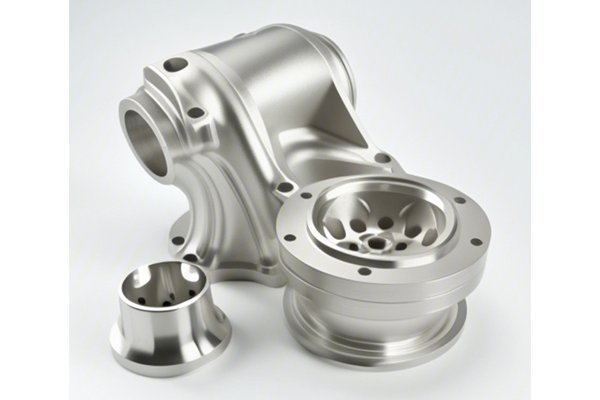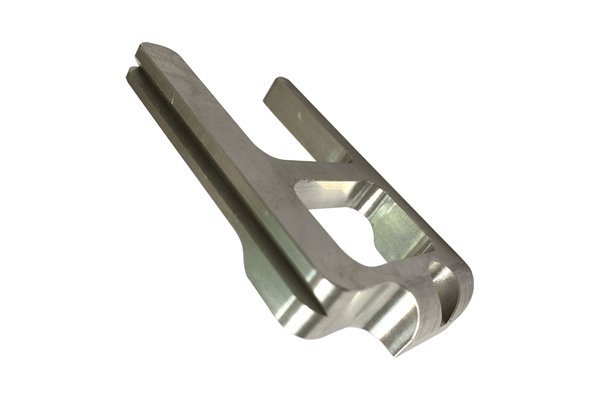Opening: The Rise of Sustainable Manufacturing
Did you know that the manufacturing sector is responsible for about 20% of global greenhouse gas emissions? As the world comes to grips with the devastating consequences of climate change, industries are now under increasing pressure to adopt sustainable practices. Among the many manufacturing processes, CNC (Computer Numerical Control) machining, particularly involving aluminum, presents unique opportunities to implement green practices. But how can businesses transform their CNC operations to prioritize sustainability without compromising efficiency or quality?
In this blog, we will explore the best practices for green manufacturing specifically in aluminum CNC processing. From energy-efficient machinery to waste reduction techniques and eco-friendly materials, we will cover everything you need to know to make your CNC operations more sustainable.
—
Understanding Green Manufacturing
What is Green Manufacturing?
Green manufacturing refers to the sustainable approach of designing, manufacturing, and distributing products that minimize environmental impact. This methodology emphasizes efficiency, waste reduction, and the utilization of renewable resources. It is a critical shift in the manufacturing landscape that recognizes the importance of economic viability alongside social responsibility and environmental stewardship.
The Advantages of Green Manufacturing in CNC Processing
Investing in green manufacturing practices is not just ethically sound; it also brings numerous benefits:
—
Key Principles of Green Aluminum CNC Processing
The first step towards greener aluminum CNC manufacturing involves understanding the key principles that guide sustainable practices. Below are several core strategies for achieving green manufacturing in CNC machining.
Adopting Energy-Efficient Machines
One of the most impactful ways to enhance sustainability in CNC machining is through energy-efficient machinery. Newer CNC machines are designed with advanced technologies that consume less energy than older models. Invest in eco-friendly machines that comply with energy-efficiency standards such as the ENERGY STAR rating.
Implementing Energy Management Systems
Consider adopting energy management systems (EMS) to monitor and optimize energy consumption in your manufacturing processes. EMS can track data in real-time, identify inefficiencies, and allow for better decision-making in energy usage.
Minimizing Material Waste
Aluminum is a recyclable material, and minimizing waste in CNC processing is a crucial step in achieving sustainability. Implementing a digital inventory management system can help you keep track of aluminum usage and reduce scrap rates by predicting the amount needed.
Recycling Scrap Aluminum
Establish a recycling program for scrap aluminum generated in the CNC process. Collaborate with local recycling centers or create an in-house recycling process that allows you to reuse aluminum shavings or remnants.

—
Techniques for Green Aluminum CNC Machining
Chemical-based cutting fluids can have harmful environmental effects. Switch to biodegradable or vegetable-based cutting fluids that are less toxic and environmentally friendly. Not only do these fluids reduce the environmental footprint, but they can also improve surface finishes and tool life.
Lean Manufacturing Principles
Lean manufacturing aims to maximize value while minimizing waste. Adopting lean principles in CNC machining helps in identifying areas of waste in processes, leading to more efficient operations. Techniques such as value stream mapping can visualize processes and highlight opportunities for improvement.
Use of Advanced Technologies
Invest in technologies that optimize machining processes, such as advanced CNC programming software that enhances cutting paths and tools. Simulation software can also predict machining outcomes to prevent waste before commencing physical operations.
—
Engaging Employees in Sustainability Efforts
Educating employees about green manufacturing practices is vital for achieving sustainable goals. Initiate training sessions on energy conservation techniques, waste management, and the importance of sustainability within the organization. Encourage feedback and ideas from staff members to foster a sense of ownership of the sustainability agenda.
Promote a culture that emphasizes sustainability in all aspects of the business. Recognize and celebrate employees or teams that contribute significantly towards achieving green goals. This encourages commitment and accountability towards sustainable practices.
—
Collaborating for Sustainability
Your commitment to green manufacturing should not stop at your facility; it should extend to your supply chain. Engage with suppliers who adopt sustainable practices and ensure their materials meet eco-friendly standards. Look for partnerships with companies that emphasize responsible sourcing and distribution.
Perform a life cycle assessment (LCA) of the aluminum products you manufacture. By evaluating the environmental impact from raw material extraction to disposal, you can identify areas to improve sustainable practices and make informed decisions that enhance sustainability.
—
: The Future of Aluminum CNC Processing
The commitment to implementing green manufacturing practices in aluminum CNC processing is vital for the future of our planet. Not only does environmental sustainability represent a moral imperative, but it is also a strategic business decision that drives long-term success.
Adopting energy-efficient machinery, reducing waste, and engaging employees in sustainable practices are just a few steps businesses can take towards a more sustainable future. The importance of creating a circular economy within manufacturing will only grow as awareness of environmental issues expands.
It’s time to make thoughtful, well-informed decisions about how we manufacture today. By embracing green manufacturing in aluminum CNC processing, we not only contribute to a healthier planet but also enhance our company’s competitiveness in an increasingly eco-conscious market. It is an investment in our shared future that is worth considering.
—






